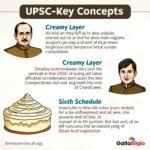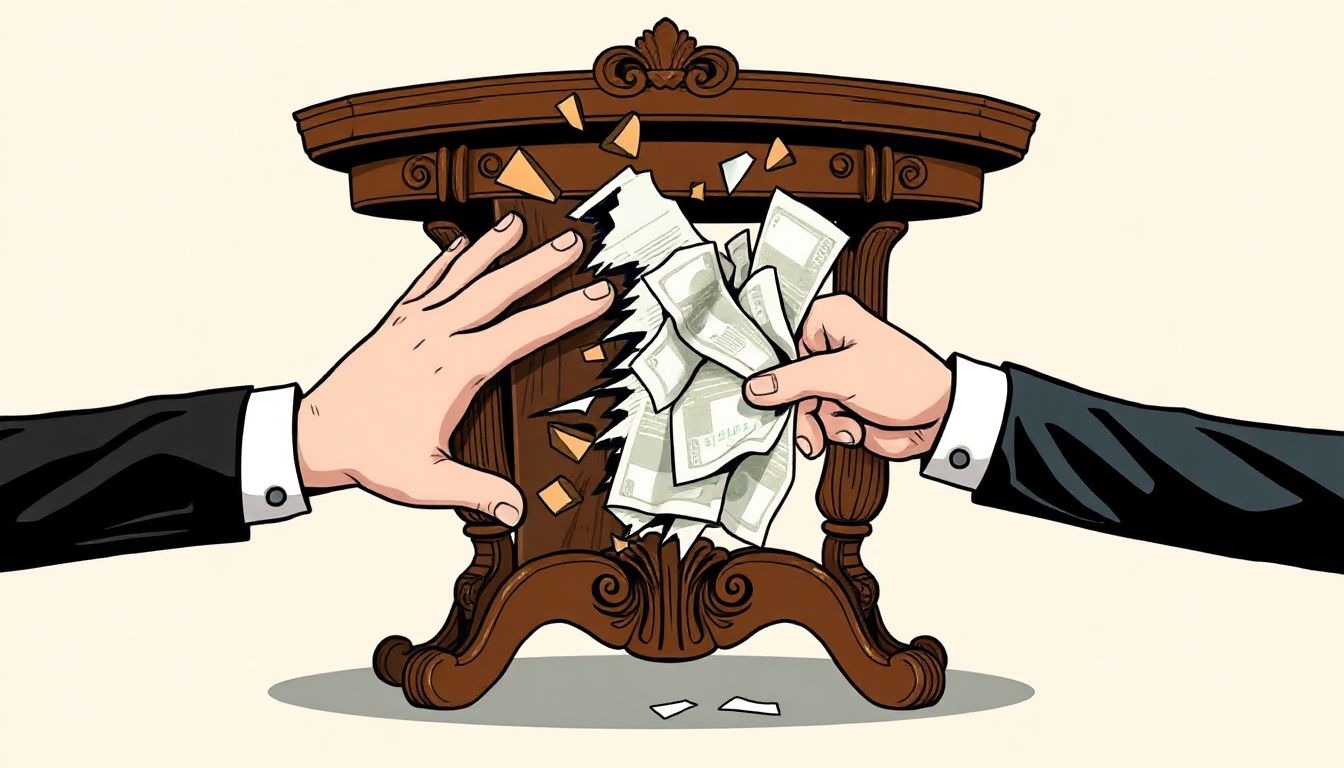“Will Break Table, Tear Bill”: Political Firestorm Over Motion to Remove Arrested PM, Chief Ministers.
A high-stakes political drama is gripping the nation. A bold motion has been put forward in parliament, aiming to remove the arrested Prime Minister and several Chief Ministers from their powerful positions. This move has sparked a fierce conflict, pushing the country’s political system to its very limits.
Amidst this intense standoff, a phrase has emerged that sums up the raw emotion and procedural chaos: “‘Will break table, tear bill'”. This saying highlights the deep divide and the sheer determination on both sides to win, no matter the cost. It speaks to a moment of outright defiance in the halls of power.
This situation holds huge importance for our democratic institutions, for the stability of the government, and for the rule of law itself. How this crisis unfolds will shape the nation’s future in profound ways. We are watching history happen.
The Genesis of the Motion: Unprecedented Circumstances
The Arrests That Shook the Nation
This political earthquake began with the stunning arrests of the Prime Minister and several Chief Ministers. These high-profile detentions happened suddenly, sending shockwaves through the country. Charges were filed, alleging serious offenses like corruption and abuse of power.
Authorities said their actions were based on solid evidence and legal mandates. They claim the arrests followed due process, as laid out in the nation’s laws. These events set the stage for the dramatic motion now dominating parliament.
Constitutional and Legal Challenges
The motion to remove these elected leaders while they are under arrest has sparked a major legal debate. Lawyers on both sides are arguing about what the constitution allows. Some say the motion is a valid way to hold leaders accountable.
Others argue it goes against the spirit of democracy, especially if leaders are presumed innocent until proven guilty. There are many different views on relevant constitutional articles and parliamentary rules. The nation lacks clear precedents for such a unique situation, making the legal path unclear.
The Motion’s Specific Aims
The motion itself is clear in its main goal: to remove the arrested Prime Minister and Chief Ministers from their posts. Beyond removal, it also seeks a full parliamentary inquiry into the alleged offenses. Proponents of the motion argue this step is vital for transparency.
They believe it will restore trust in government leadership. The explicit wording of the motion leaves little doubt about its forceful objectives. Supporters state that immediate action is needed to fix the political crisis.
Parliamentary Gridlock: The “Break Table, Tear Bill” Standoff
Procedural Maneuvering and Filibustering
Inside the parliament, tactical battles have taken over. The motion’s introduction led to immediate uproar and fierce arguments. Opposing factions have used every trick in the book to either push the motion forward or stop it dead.
This includes long speeches, endless delays, and calls for new votes. Such procedural maneuvers have brought normal parliamentary work to a halt. Disruptions are common, turning legislative sessions into chaotic scenes.
The Meaning Behind the Metaphor
The phrase “‘Will break table, tear bill'” captures the raw frustration and extreme defiance seen in parliament. It means a complete refusal to follow rules or compromise. This saying shows a breakdown of mutual respect and consensus among leaders.
While its exact origin in this context is unclear, it evokes historical moments of dramatic political protest. Analysts see it as a symbol of absolute determination. It speaks to a belief that the current system is failing and radical action is needed.
Impact on Legislative Work
The intense focus on this single motion has frozen much of the government’s work. Important laws are stuck, unable to move forward. Decisions on pressing national issues, like the economy or public health, are delayed indefinitely.
The public sees parliament as ineffective, caught in an endless loop of fighting. This gridlock hurts the country’s progress. It also makes people wonder if their elected leaders can truly solve their problems.
Stakes for Democracy and Governance
Precedent for Future Political Crises
How this situation is resolved will set a powerful example for years to come. Will it create a dangerous path for removing elected officials based on political disputes? Experts worry about the long-term impact on democratic norms.
It could lead to more political instability and make governments weaker. The outcome here will shape how political accountability is handled in our nation. This moment matters deeply for the future of our leadership.
Public Trust and Political Stability
This long period of political chaos is deeply hurting public confidence in government. People are growing tired of the constant fighting. Polls show a sharp drop in trust for political institutions and leaders.
There are concerns this turmoil could lead to social unrest or larger public demonstrations. A stable political system relies on public faith. This ongoing crisis erodes that crucial trust every single day.
International Scrutiny
The political unrest has caught the eye of the world. International bodies and foreign governments are watching closely. They have raised concerns about the country’s democratic health.
International news outlets are covering the story, questioning the stability of the nation. This global attention puts added pressure on leaders to find a fair solution. The country’s image on the world stage is at stake.
Expert Analysis and Political Commentary
Legal Jurists’ Perspectives
Constitutional lawyers and legal experts have weighed in with varied opinions. Some argue the motion is legally shaky, possibly violating fundamental rights. They point to the presumption of innocence.
Others believe the law allows for such actions when serious charges are pending against leaders. They say accountability is key for a healthy democracy. These differing views highlight the complex legal tightrope the nation walks.
Political Scientists’ Insights
Political scientists see the motion as a struggle for power. They analyze the strategies of different parties and coalitions. The underlying motivations often involve gaining political advantage.
They point to how executive and legislative branches clash during times of crisis. Party discipline plays a big role in how votes might go. This whole event shows deep cracks in the nation’s political structure.
Parliamentary Procedure Experts
Experts on parliamentary rules are watching the unfolding events with keen interest. They note the unusual procedural battles. Some see a clear breakdown of established etiquette and conventions.
They compare current events to past procedural disputes in other democracies. Such experts help us understand whether the actions taken are legitimate or just political theater. They show how important rules are, even in heated moments.
Navigating the Political Storm: Potential Outcomes and Public Response
Scenarios for Resolution
There are several ways this intense situation could end. The motion might pass, leading to the removal of the arrested leaders. Or it could fail, keeping them in their roles for now. There is also the chance of a compromise, a deal struck behind closed doors.
Further legal challenges could happen, taking the fight to the courts. The outcome depends heavily on parliamentary votes and potential judicial interventions. Each path has huge implications for the nation’s future.
Public’s Role and Reaction
The public is watching this crisis with mixed feelings, from anger to worry. Many citizens are speaking out, demanding transparency and fair play. People are using social media, signing petitions, and attending local gatherings.
Historically, public pressure can sway political decisions. Citizens have a right to advocate for what they believe is right. Their voices are important in guiding leaders during this tough time.
Actionable Tips for Citizens
It is vital for you to stay informed during this political storm. Look for news from many reliable sources to get a full picture. Understand how parliamentary proceedings work; it helps make sense of the chaos.
Consider contacting your elected representatives to share your views. Your engagement makes a difference. Being an active part of the discussion helps keep our democracy strong.
Conclusion: The Future of Governance
Theo current political standoff over the motion to remove arrested leaders is a critical mment for our nation. The immediate outcome will shape the government’s path forward and impact national stability. This struggle tests the very fabric of our political system.
We must learn important lessons from this crisis about democratic strength and the need to follow constitutional norms. It highlights the dangers of political division and what happens when leaders cannot find common ground. Moving past this requires a commitment to fairness and the rule of law.
For our nation to thrive, political stability and accountability are key. Respect for democratic institutions must be upheld by all. Only through these shared values can we ensure a strong and just future for everyone.
Will Break Table, Tear Bill, Political Firestorm, Motion to Remove PM, Arrested Prime Minister, Chief Ministers, Parliament Chaos, Political Turmoil, Legislative Uproar, Opposition Protest, Bill Tearing, Table Breaking, Government Crisis, Leadership Struggle, Political Drama, Lawmakers Clash, Democracy at Risk, Parliamentary Deadlock, National Politics, Power Struggle












